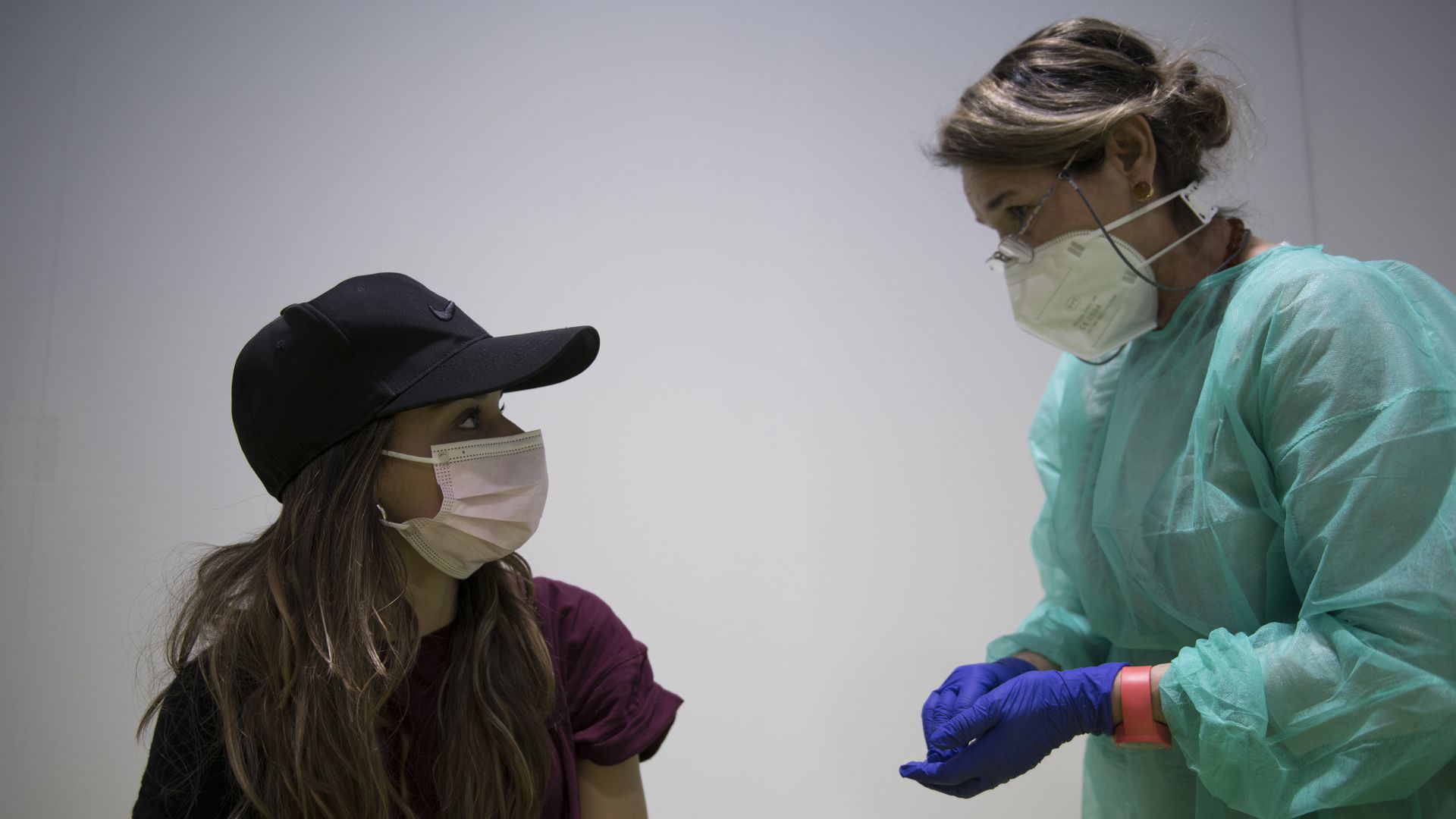Mar 14, 2021 - Health
AstraZeneca: No evidence of increased blood clot risk from COVID vaccine
Add Axios as your preferred source to
see more of our stories on Google.

A member of school staff receives the vaccine for COVID 19 by AstraZeneca on CUS Turin University Sports Center on Sunday in Turin, Italy. Photo: Stefano Guidi/Getty Images
